Trumpet Maintenance
Can I maintain my trumpet/flugelhorn/cornet myself?
It is very easy to keep your trumpet, flugelhorn, or cornet in good condition. When you properly maintain your instrument, you will enjoy a well-playing trumpet for as long as possible. Of course, you can come to us for repairs or maintenance, but if you want to save time and money, follow the tips we provide on this page.
- How do you keep your trumpet in the best condition?
- What can you do yourself and what should you leave to a specialist?
Here you can find everything about maintaining your trumpet, cornet, or flugelhorn. We cover: Maintenance after playing, how to keep your valves running smoothly, and what you can do weekly, monthly, and quarterly to properly maintain your cornet, trumpet, or flugelhorn.
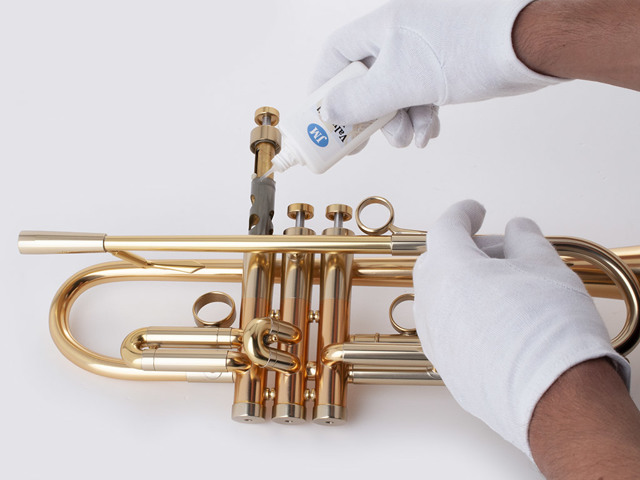
Before playing
One of the most common repairs is that the slides and triggers no longer move. You can fix this by moving all the slides up and down once before you start playing. If you notice that the slides do not move smoothly, you can lubricate them with slide grease. Do not use vaseline, as it melts away at high temperatures and solidifies at low temperatures, causing the slides to stick. For the trigger slides, use trigger oil or slide grease, not valve oil.
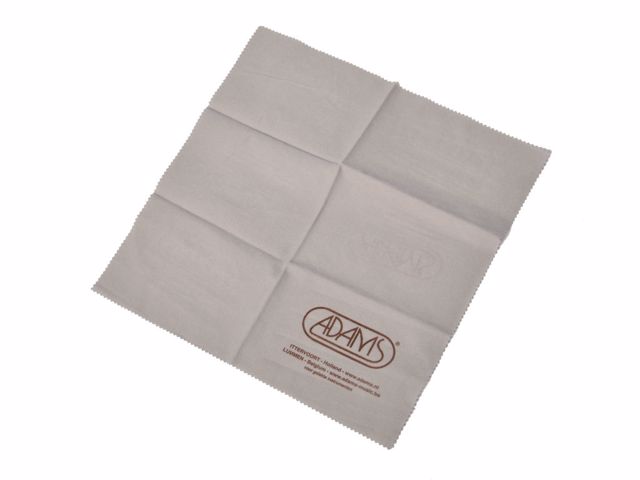
After playing
Clean your instrument after you have played. This is especially important in places where the instrument comes into contact with hands or saliva. Sweat and saliva can damage the finish. Special cleaning cloths are available for this purpose. For silver-plated instruments, use a cloth impregnated with a silver polish.
Weekly
Leave the case open for half an hour once a week so the trumpet can dry properly.
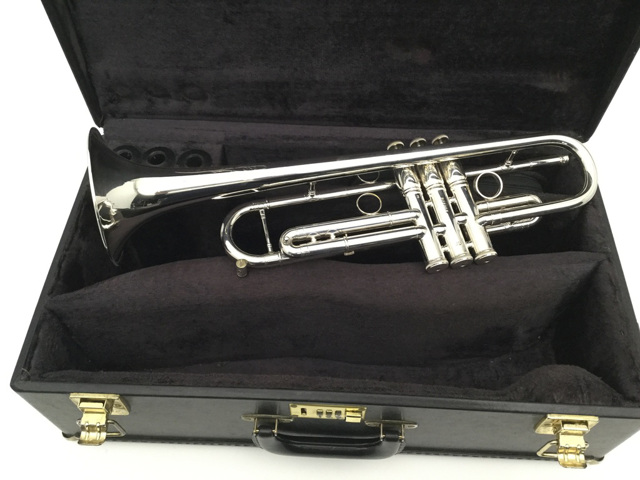
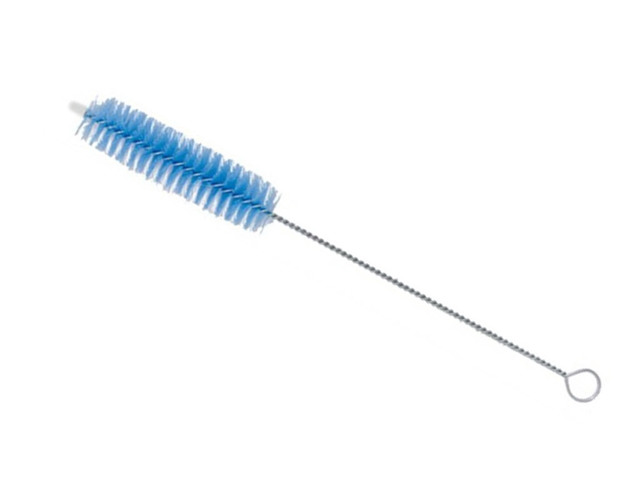
Monthly
Clean your mouthpiece once a month. The mouthpiece collects the most bacteria. Mouthpieces can be disinfected with isopropyl alcohol. You can do this with a cotton swab or a cloth that can be passed through the mouthpiece.
You can also leave the mouthpiece in lukewarm water with a drop of dish soap without citric acid for half an hour and then scrub the outside and inside thoroughly. You can scrub the outside with a toothbrush or dish brush. There are special mouthpiece brushes available for the inside. Then rinse the mouthpiece with clean running water.
Always place the mouthpiece carefully into the mouthpiece receiver and never hit it with your hand. This can cause the mouthpiece to get stuck.
Quarterly
Clean the inside of the instrument at least once every three months. It is best to use lukewarm water with a little liquid detergent, such as dish soap without citric acid or Badedas. Never use boiling water or soda. Soak the instrument in this solution for about thirty minutes, for example, in a bathtub or plastic container, and then rinse the instrument thoroughly with clean running water.
If you want to have your instrument professionally cleaned, this is possible at Adams. We have a large ultrasonic cleaning system that is suitable for all brass instruments.
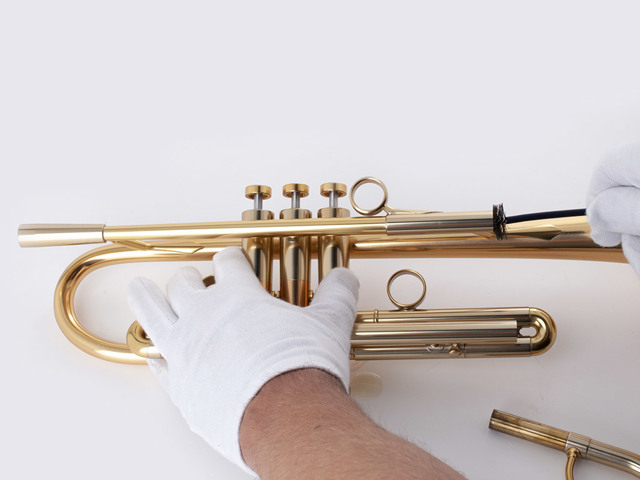
Cleaning
To clean the valves, first unscrew the valve caps at the bottom and then the valves themselves. Most valves are numbered, but if you lay them out in order, you can hardly go wrong. Wipe the valves thoroughly with a cloth that does not lint or leave fibers behind. Special brushes are available for cleaning the inside of the valve casings. You can also clean it by wrapping a lint-free cloth around a pencil. You can then gently rub back and forth through the valve casing.
When reassembling the valves, use a few drops of valve oil. Only use valve oil and no grease or other oils, as this can cause the valves of your instrument to stick. For plastic instruments, valve oil often does not work, and water is a better lubricant.
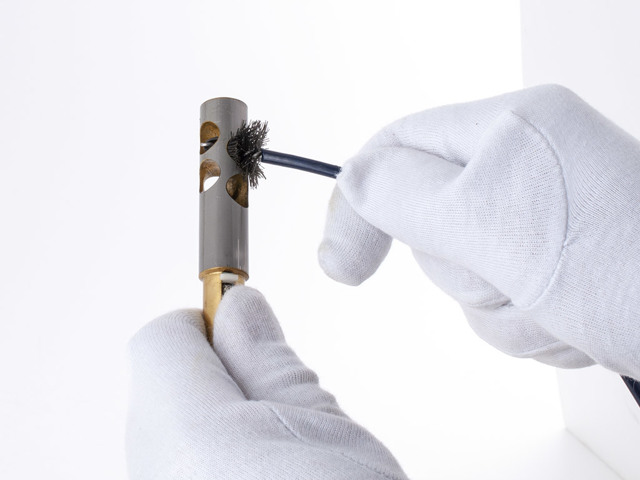

Other Tips and Tricks
- Do not store loose items such as music stands, reeds, clothespins, mouthpieces, and paperclips in the case unless there is a dedicated storage space for them. This is one of the most common causes of dents in the instrument.
- Do not eat or drink while playing. Make sure your mouth is clean before you start playing. This prevents food residues from remaining in the instrument.
- Give all instruments enough time to dry completely after cleaning or playing, as this prevents many issues such as red rot.
Annually
Take your instrument to a specialized repair shop once a year. Also, visit a repairer if you think your instrument is not playing well. They will check your instrument to see if maintenance is needed. During such a visit, they will also inform you about any future maintenance required. This way, you are always well-informed and aware of the condition of your instrument.
